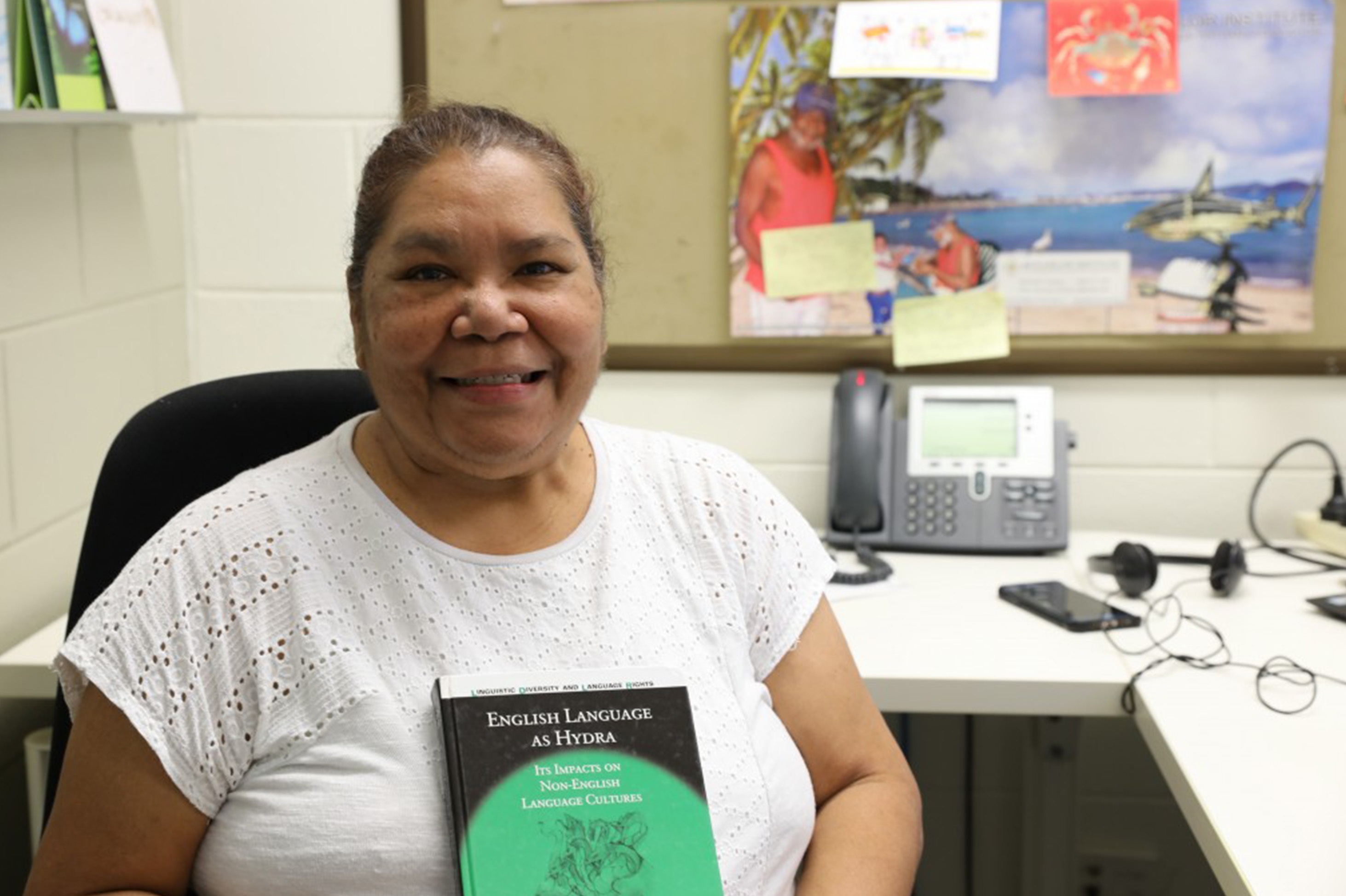

A Northern Territory academic at Batchelor Institute hopes to win a grant to lead a major investigation into an important issue in education – supporting Indigenous schoolchildren to learn English as a second language whilst keeping their own language, culture and identity strong.
Mamu-Bagirgabara woman Dr Robyn Ober, who has taught at Batchelor Institute for 30 years, is interested in how technology can be used to support Indigenous schoolchildren to learn English.
Most children living in Aboriginal communities speak English as a second or third language, with Kriol or traditional languages being their first language.
If successful in her grant application, Dr Ober’s investigation will explore the use of technology to recognise children’s first language, alongside increasing their competency and confidence using English.
Dr Ober said, “Aboriginal parents have always said they want their children to understand English to engage effectively and thrive in both worlds.
“We want to research how we can better support children to remain strong in their own culture and identity and also be competent in English literacy,” she added.
Dr Ober said her research team wanted to look at ways to be innovative using technology as a learning tool.
“Aboriginal children are “tech savvy”, so the use of technology to support them to develop their confidence using English will have lifelong benefits,” said Dr Ober.
“It makes sense to tap into children’s strengths and interests and utilise digital technologies to teach English literacy.”
Dr Ober who is currently the Indigenous Scholar In-Residence at the University of Melbourne, will apply to the Australian Research Centre, the country’s peak research body, for a grant to conduct the research.
Her team in the application will include two renowned academics: Professor Gillian Wigglesworth and Dr Helen Zhao.
Dr Ober is also working on journal papers, guest lecturers, seminar presentations and workshops around her PhD topic – Aboriginal English as a Social, Cultural and Identity Marker in Indigenous Tertiary Education.
